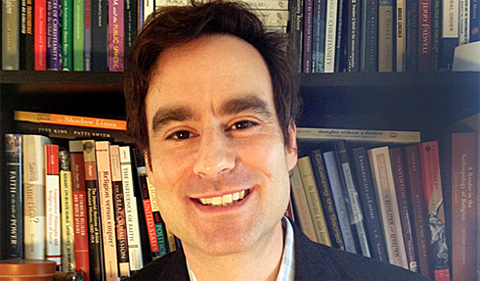
Jonathan Agensky
Dr. Jonathan C. Agensky, Assistant Professor of Political Science, recently published an article titled “Recognizing Religion: Politics, History, and The ‘Long 19th Century” in the European Journal of International Relations.
The article reflects on the treatment of religion within scholarly fields of international relations and political science. Responding to treatments of religion as exceptional to mainstream politics, it emphasizes how religion has been, paradoxically, both central to and occluded from western political life through dynamics that took shape over the long 19th century. Agensky illustrates how these dynamics—political, imperial, normative, epistemological—continue today at the global level, in ways obscured by scholarly orthodoxies. The article proposes an historical-theoretic approach to addressing contemporary matters of religion and international politics based on “entangled histories”: a means of “recognizing” interconnected ways in which religion is constituted as both a social and analytical category. In doing so, it addresses renewed debates about the role of history in international relations theory, suggesting “entanglement” as a productive framing for international politics generally.
Agensky’s research is broadly situated within interpretive international relations, drawing on international historical sociology, postcolonial/African studies, and social and political theory. He is currently working on his book about international political order, Christian humanitarianism, and South Sudan. The book offers an in-depth historical case study of how Christian groups of the global North involved themselves in the international politics of Sudan’s second civil war (1983-2005) and South Sudan’s subsequent 2011 independence.
Agensky teaches courses in international relations, including POLS 3520: International Peace, POLS 4765/5765: Diaspora, Transnationalism, and Post-colonialism. In Spring 2018, he is offering POLS 6500: International Relations, a graduate seminar on International Relations theory, and POLS 4904/5404: Special Topics in International Relations: Global Humanitarianism (course # 9116/9117).
The course on global humanitarianism draws upon a variety of interdisciplinary materials that examine humanitarianism as an expression of global civil society, a mechanism of global governance, and an instrument of power and politics. This course is organized around a specific set of themes intended to: (1) unsettle prevailing norms of humanitarian practice; (2) disrupt the politics legitimated by various humanitarian appeals; and (3) uncover the multitude of humanitarian sensibilities that shape social interactions across the global North and South. Throughout the semester, it explores the entanglements of humanitarianism in religious faith, aid economies, imperialism, human security, and military intervention across different contexts. The course meets Tuesday/Thursday from 10:30 to 11:50 a.m.



















Comments